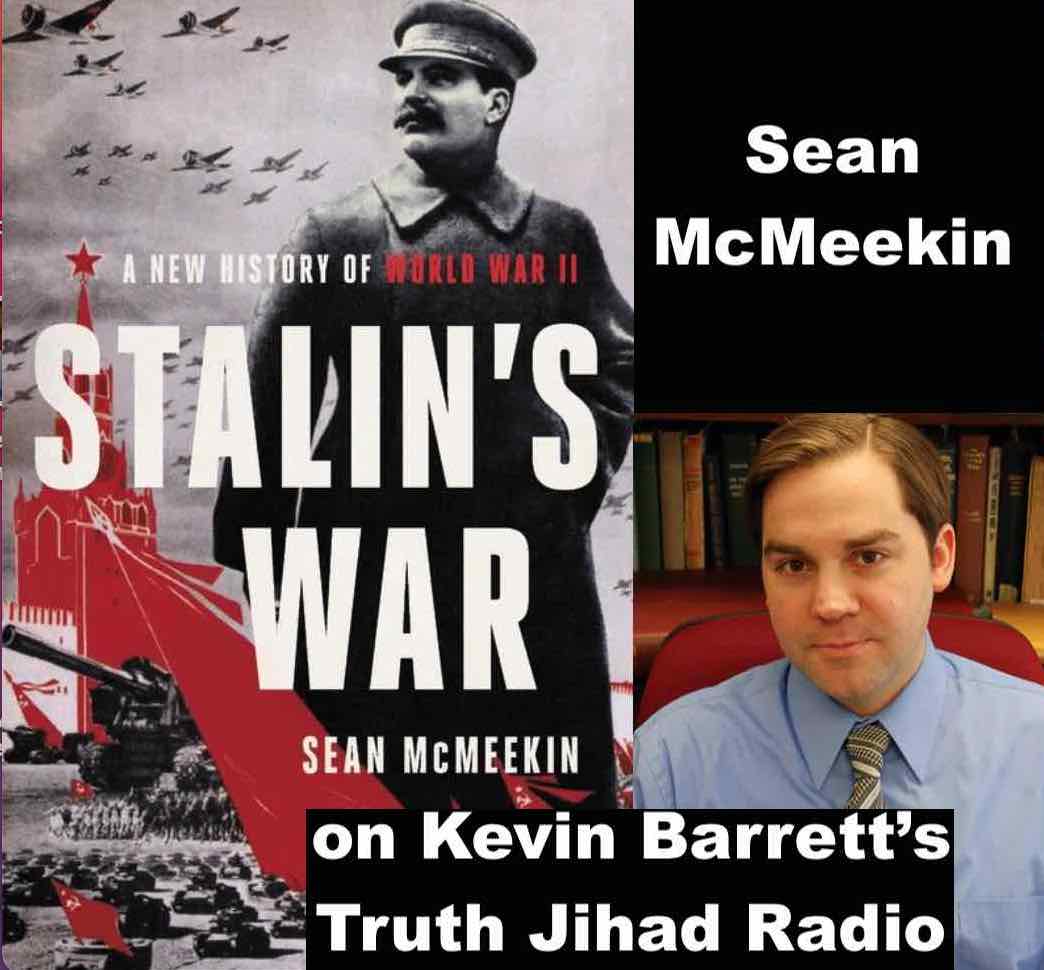
Listen HERE
Bard College history professor Sean McMeekin discusses his new book Stalin’s War: A New History of World War II. McMeekin’s engrossing narrative presents an implicit and sometimes explicit argument that the war’s primary instigator and villain was Stalin, not Hitler. For while the Fuhrer may have been an aggressor, dictator, human rights abuser, and general villain, it was the Vozhd not the Fuhrer who desired, orchestrated, and won the war, commanded its biggest armies in the most theaters across most of the Eurasian landmass, and emerged with the lion’s share of the war booty. Stalin got and won his war, in McMeekin’s interpretation, thanks to Hitler’s swallowing the bait of the Molotov-Ribbentrop pact—and thanks to the fecklessness of Churchill and especially Roosevelt, who grossly undermined their respective national interests by kowtowing to Stalin and showering him with the material support he used to win his war of conquest. Indeed, McMeekin’s material suggests that the Suvorov thesis, according to which Hitler’s Operation Barbarossa saved Europe from Soviet conquest, is largely correct. The Cold War, in this reading, was really just the long drawn-out ending of World War II, as the Soviet Union’s opponents recognized and fixed FDR-Churchill’s mistake. In this larger sense, World War 2 (Stalin’s war) did not end until the collapse of Communism in 1989.
So why do the standard histories offer such a Hitler-centric view of the war? Does Hitler-centrism stem from Eurocentrism, according to which the Western fringes of Eurasia are the main focus of attention? Did Communist propaganda play a role? Or did Hitler’s crimes against Jews alienate a powerful interest group that responded by selling us the notion of Hitler the iconic cartoon villain and central figure of the war? However the public myth of World War II was created, Sean McMeekin has effectively debunked it and pointed the way to a more comprehensive and accurate understanding.
Super interesting, Kevin! A whole new chapter to WWII has been opened for me, who thought I’d read it all. Question for professor McMeekin: who paid for these billions of dollars of help to the USSR through ‘Lend and Lease’ etc? Surely the US and UK tax payers could not have, being tied up in a war economy of their own? Thanks!